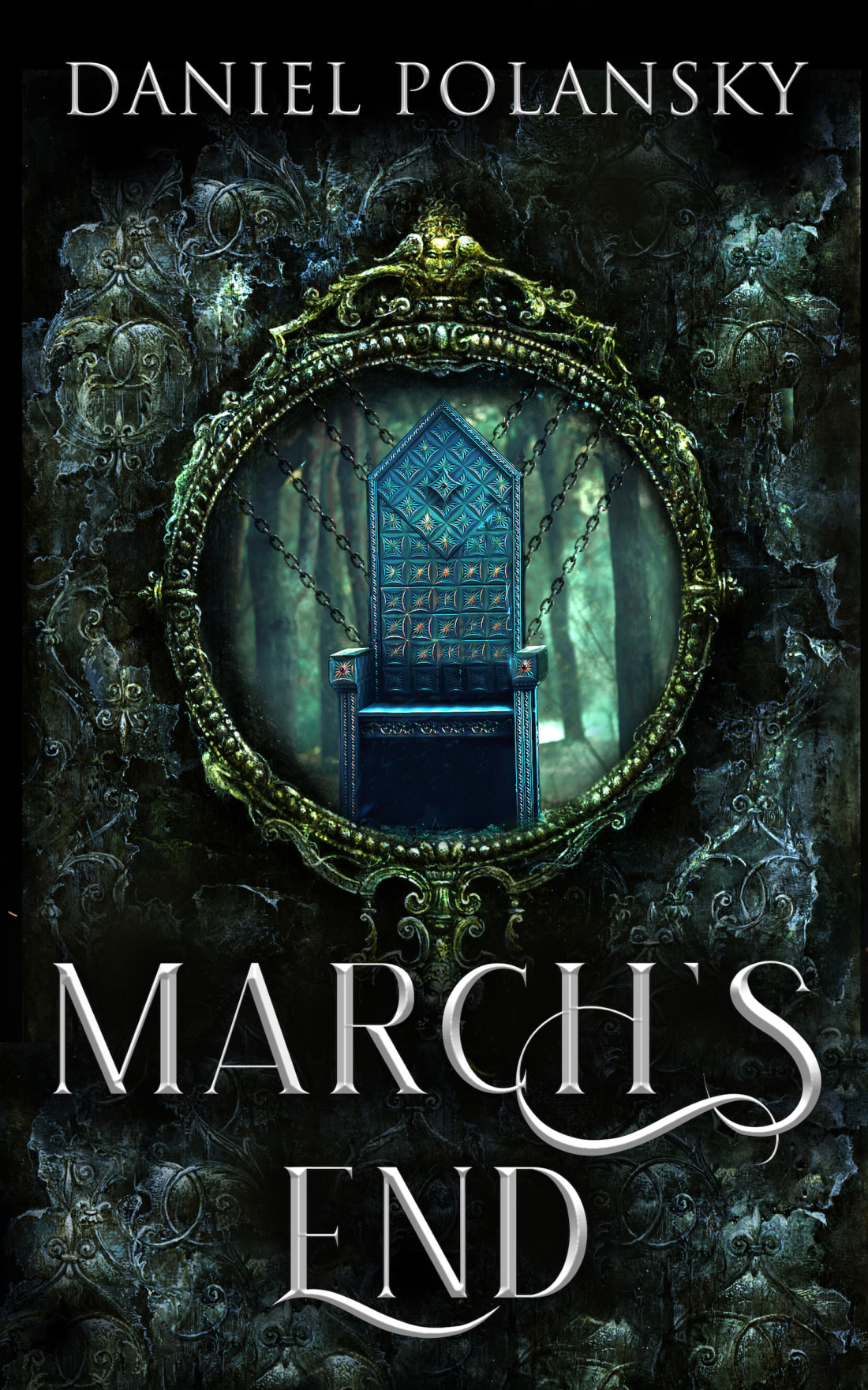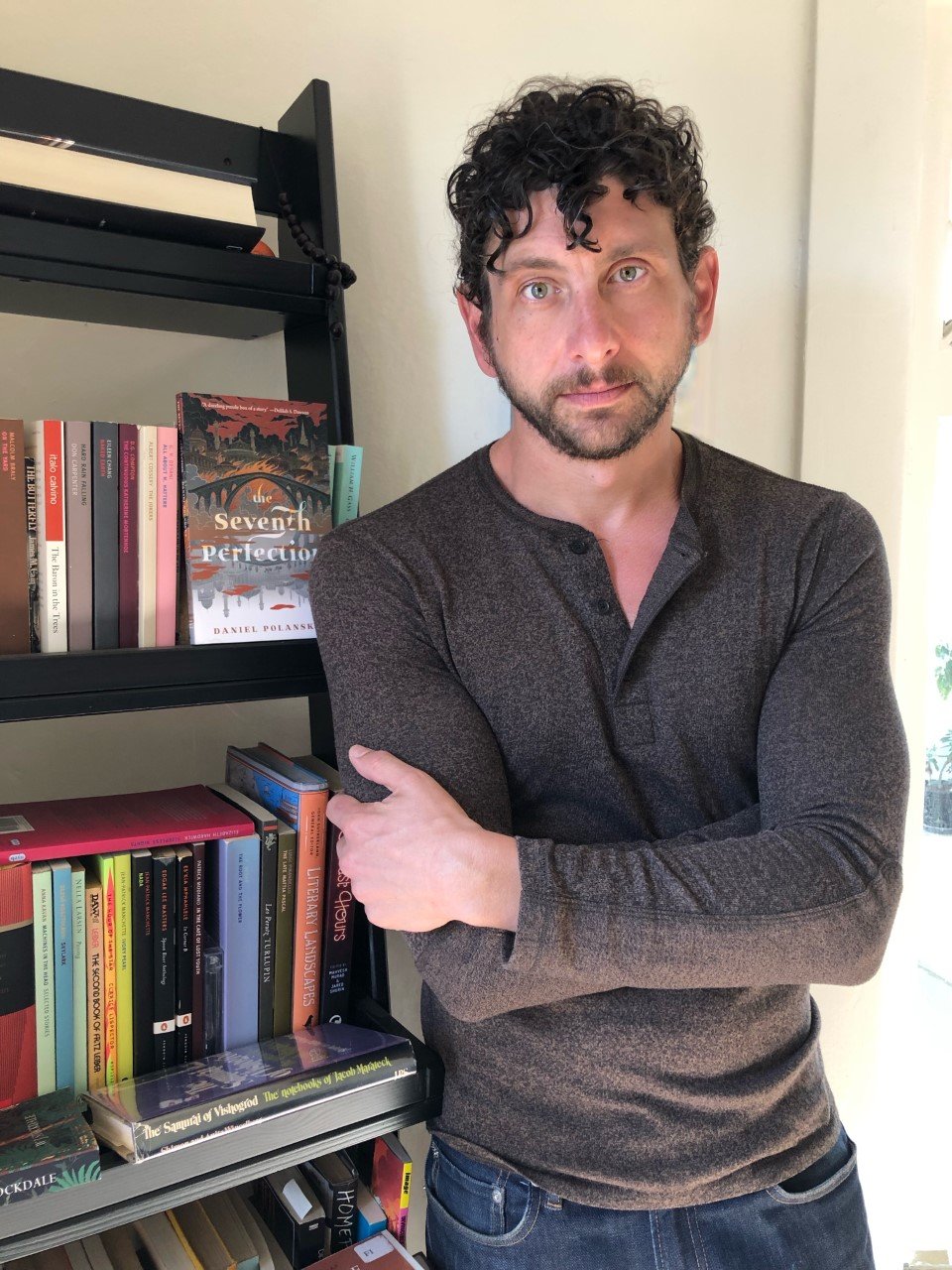March's End, by Daniel Polansky
16 May 2023The Book

Synopsis:
March's End is a multi-generational portal fantasy of strange magics, epic warfare, and deadly intrigue, in which the personality conflicts and toxic struggles of the Harrow family are reflected in the fantasy world they've sworn to protect.
The Harrows are a typical suburban family who, since time immemorial, have borne a sacred and terrible charge. In the daylight they are teachers, doctors, bartenders and vagrants, but at night they are the rulers and protectors of the March, a fantastical secondary world populated with animate antiquated toys and sentient lichen, a panorama of the impossible where cities are carried on the backs of giant snails, and thunderstorms can be subdued with song.
But beneath this dreamlike exterior lie dark secrets, and for generation after generation the Harrows have defended the March from the perils that wait outside its borders – when they are not consumed in their own bitter internecine quarrels.
In the modern day the Harrow clan are composed of Sophia, the High Queen of the March, a brilliant, calculating matriarch, and her three children – noble Constance, visionary, rebellious Mary Ann, and clever, amoral Will. Moving back and forth between their youth, adolescence, and adulthood, we watch as this family fractures, then reconciles in the face of a conflict endangering not only the existence of the March, but of the ‘real world’ itself.
March's End is a book about growing up, in which the familial struggles of the Harrows are threaded through the mythic history of the fantastical land they protect. It is a story of failure and redemption, in which the power of love is tested against forces that seek to break it, and the necessity of each generation to recreate itself is asserted.
My Review
March's End is the new portal fantasy novel by the American writer Daniel Polansky. Pitched initially as Narnia meets The Magicians, I was super excited to read this book, as it seemed perfect for me. A story that spans the life of two generations of the Harrow family; March, a world where antiquated toys and sentient lichen are its inhabitants, and an outside danger that threats to make March disappear unless the Harrow assume and fulfill their role as its protector are some of the elements that appear in this novel.
Through the history of March, Polansky interweaves a complex family drama that ends up affecting both worlds, March and the overworld. Harrow siblings weren't close, as their personalities are extremely different and tend to clash, but an accident disfigure this relationship even more.
Secrets and the idea of concealing all that happened just end up creating a dysfunctional family relationship. While Sophia, the matriarch, is trying to keep the family joint, each of the siblings has their own problems, and each one of them has developed some kind of trauma; Constance was able to raise her own family, but Mary Ann lives without a goal, and John is irremediably marked by the past.
Using a dual timeline, we get to know more about our characters through their past, and how March has always been a part of their life. Our characters have grown being linked to March, and the End is threatening one more time.
However, some things in March have changed, internal conflicts are rising among the different territories and even a revolution against the Harrow is starting. For once, their status as the rulers and protectors of this magical land is in doubt.
Getting a look at the worldbuilding, March as an idea is really original, and Polansky has put much attention to the details that make it feel alive. Different kingdoms have been formed, and some of them have disappeared in the time covered by the novel, and their past influences their relationship with the Harrows.
Despite being a story about the family, we also have space for plenty of epic battles and conflict, as the End threat is forcing many of the Thousand People to fight against it, creating some of the most memorable scenes in this book.
While the pacing is slightly affected by the dual timeline, I would say that it helps to make some parts of the plot impact harder, as we are slowly building a really complete image of our characters and their motivations. As in other Polanksy books, we have some dark moments but they work really well when you have the context.
March's End is an excellent standalone novel, perfect for those that look for some fantasy in secondary world intertwined with the complexity of family. If you are a fan of Narnia, but are looking for something more adult, don't hesitate to pick this book, as Polansky has shown his quality as an author.

